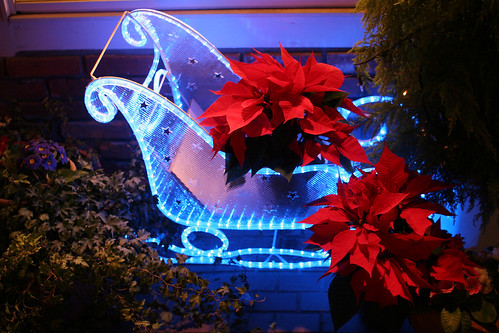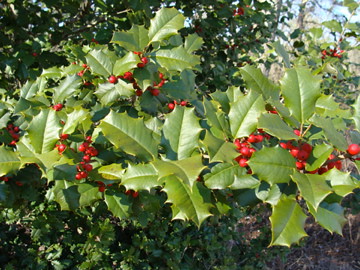This Christmas season everyone is looking forward to spending time with family. As the year draws to a close, we gather together full of love and hope for the future. It's important to remain healthy for the events that bring us all together this holiday season, and there is no exception for our favorite family members, our pets.
With the decorating and excitement that comes to this time of year, it can be easy to overlook small dangers that our pets can come across. Unfortunately, many of the plants we use to spread holiday cheer in our homes can be toxic to our furry friends, and care should be taken to keep them out of reach.
The most well known of these dangers is the Poinsettia plant. Shiny green leaves and bright red flowers make this hardy plant an obvious choice for decorating our homes in the holiday spirit. Its easy to forget that despite it's beauty, it's natural oils are toxic if ingested.
The good news is that it is frequently not deadly. The more an animal digests, the worse the symptoms can be. Drooling, vomiting, and diarrhea can all by signs that an animal has eaten part of a Poinsettia plant. Generally vet treatment is not necessary, unless the symptoms do not go away quickly, the animal begins to have tremors, or becomes listless.
Another household danger this time of year is mistletoe and holly. Mistletoe is generally hung far out of a pets reach and is very little threat. Holly however, is usually much easier for your pet to encounter. The leaves of a Holly plant, if ingested, usually provide symptoms similar to the Poinsettia. Drooling, vomiting, diarrhea, and stomach pain are at the top of the list. The real danger with Holly though, is it's berries.
The berries of a Holly plant contain a toxin that can cause seizures in cats and dogs. If you think that your pet has eaten a berry from a live plant, it's best to make an emergency vet visit. The symptoms can onset quickly and without warning.
The final overlooked danger this holiday season, is one of the most obvious decorations in your home, your Christmas tree! The lights, ornaments, and power cords can sometimes be a little too inviting to your canine and feline children. Your pets should be watched closely around these Christmas decorations. The tree itself can even cause illness, the oils from the tree are mildly toxic and pine needles are not digestible to your pet. If drooling or vomiting does not go away within a few hours, it's best to get your pet to a veterinarian.
With a little planning and a watchful eye, your pets can enjoy a happy and healthy holiday with the rest of your family. Here's to wishing you and your pet and happy holiday season!


